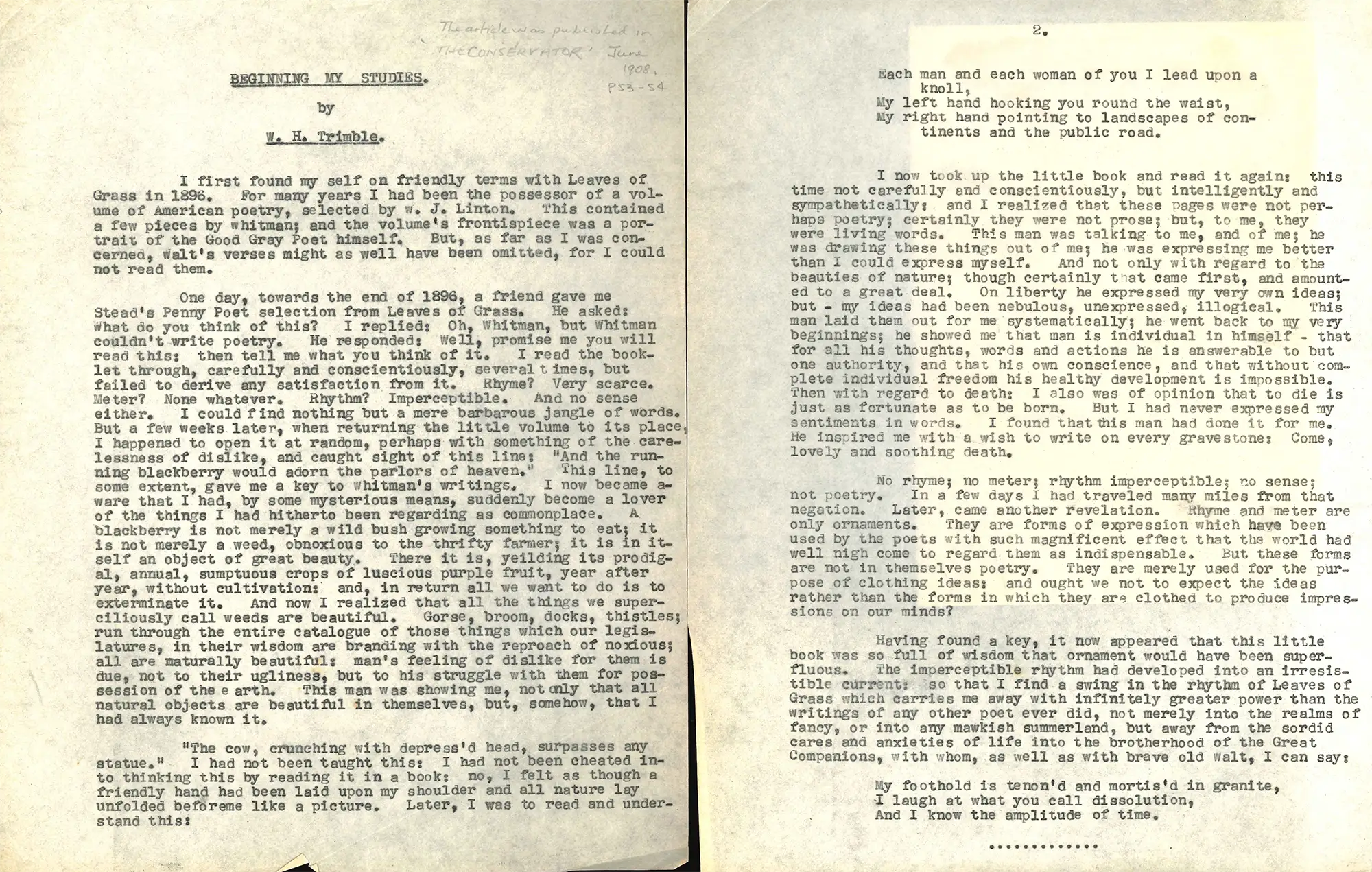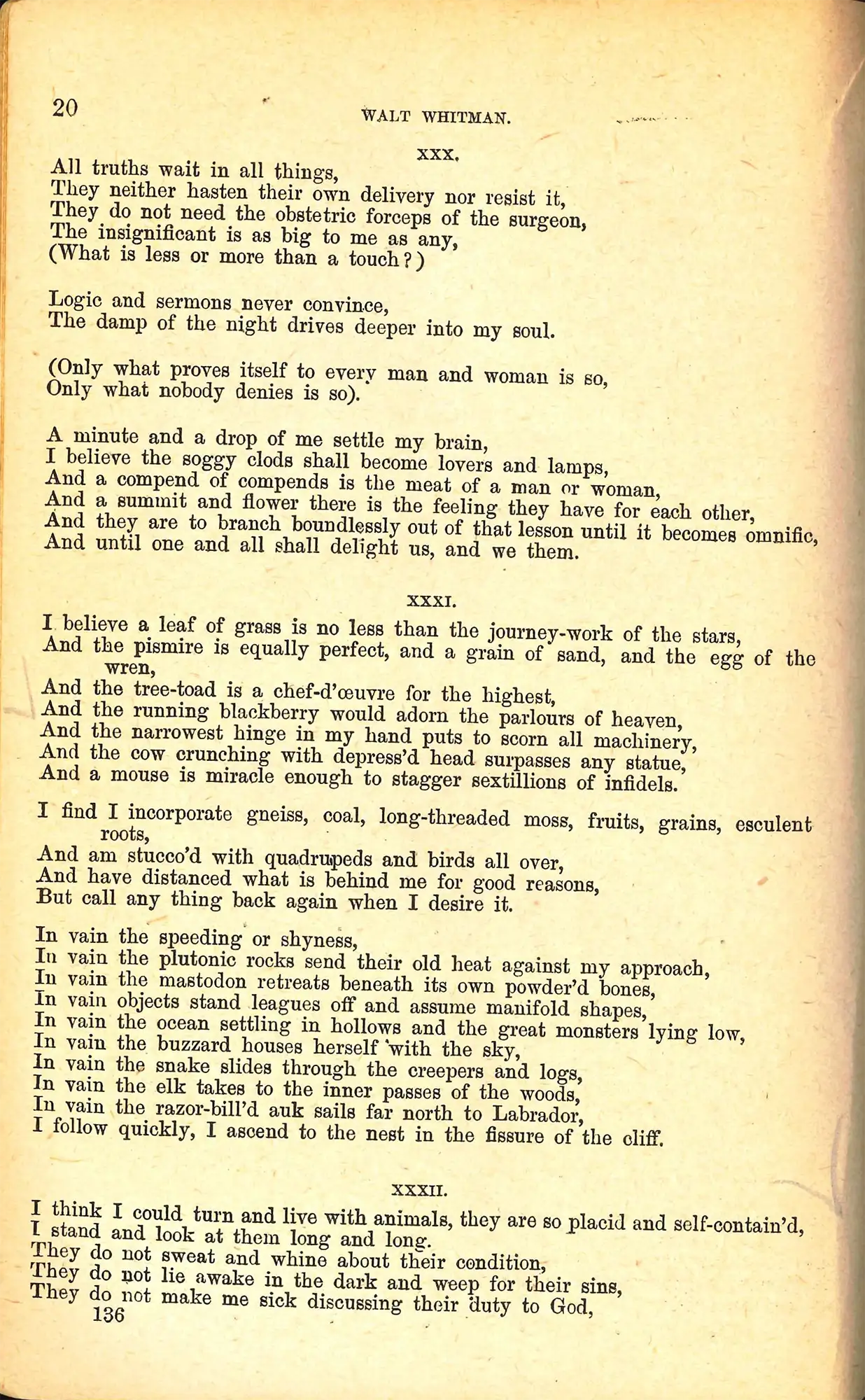Case W1
- William Heywood Trimble
![Portrait of William Heywood Trimble [1909?]](https://www.reedgallery.co.nz/__data/assets/image/0009/710586/W1a.webp)
Portrait of William Heywood Trimble [1909?]
W.H. Trimble was born near Liverpool in 1860, and emigrated to the North Island of New Zealand with his family in 1875. He worked in the public service in New Plymouth, Wellington and Gisborne before moving to Dunedin in 1898.
In Dunedin, Trimble established perhaps the most significant Whitman collection in the southern hemisphere, undertook his immense Concordance to Leaves of Grass, and wrote bibliographical and biographical works on Whitman.
In 1910, he became the first librarian of the Hocken Library, where he prepared a catalogue of the Library’s collection, while simultaneously preparing his own Whitman catalogue at home, based on his burgeoning personal collection.
Trimble lectured on Whitman in Dunedin, and was an energetic advocate for the poet in cultured circles. He died in 1927 at his St Leonards home, Concord.

W.H. Trimble. ‘Beginning My Studies’. Typescript of an article published in The Conservator, June 1908.
The Whitman Collection includes a typescript of an article later published in The Conservator, entitled ‘Beginning my studies’, in which Trimble provides an account of his first interest in Whitman. He describes how he had for years found Whitman unreadable. Then in 1896 a friend gave him a copy of Stead’s ‘Penny Poet’ selections of Whitman – which Trimble continued to find incomprehensible, “a mere barbarous jangle of words.”
He later opened the volume at random “perhaps with the carelessness of dislike” and noticed the line “and the running blackberry would adorn the parlors of heaven”. This line (marked in pencil in one of Trimble’s copies, displayed here) was his moment of revelation. Trimble was struck by Whitman’s wisdom and found himself “carried away with infinitely greater power than the writings of any other poet ever did.”
The title of Trimble’s article is borrowed from a poem in Whitman’s Drum-Taps.

W.H. Trimble. ‘Beginning My Studies’. Typescript of an article published in The Conservator, June 1908.
Open image in new window

Walt Whitman. Poems. London: Review of Reviews Office, 1895.
This copy of Stead’s ‘Penny Poet’ selections of Whitman (one of several owned by William Trimble) features the line “and the running blackberry would adorn the parlors of heaven” marked in pencil, denoting his moment of revelation.
![Portrait of William Heywood Trimble [1909?]](https://www.reedgallery.co.nz/__data/assets/image/0009/710586/W1a.webp)

